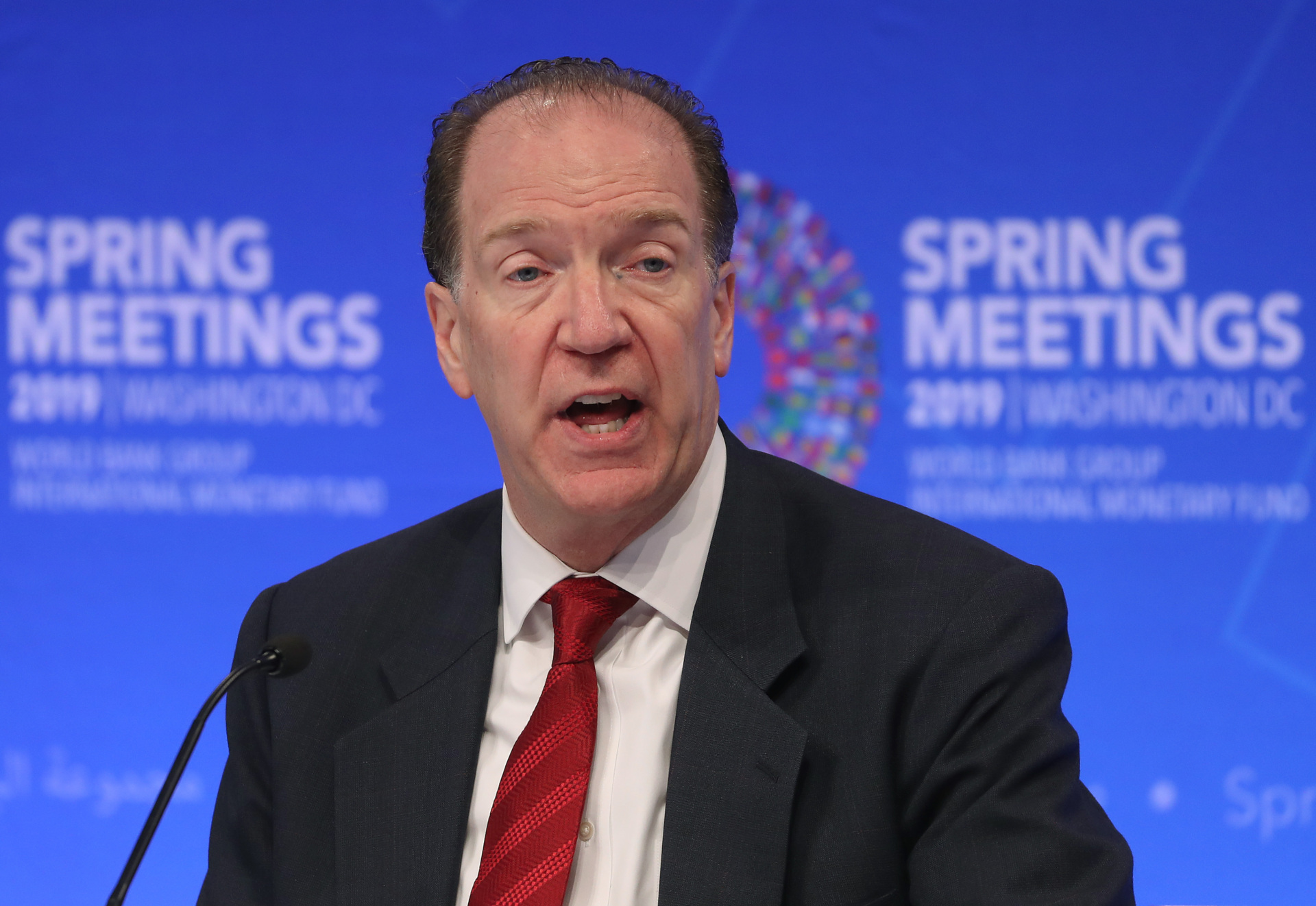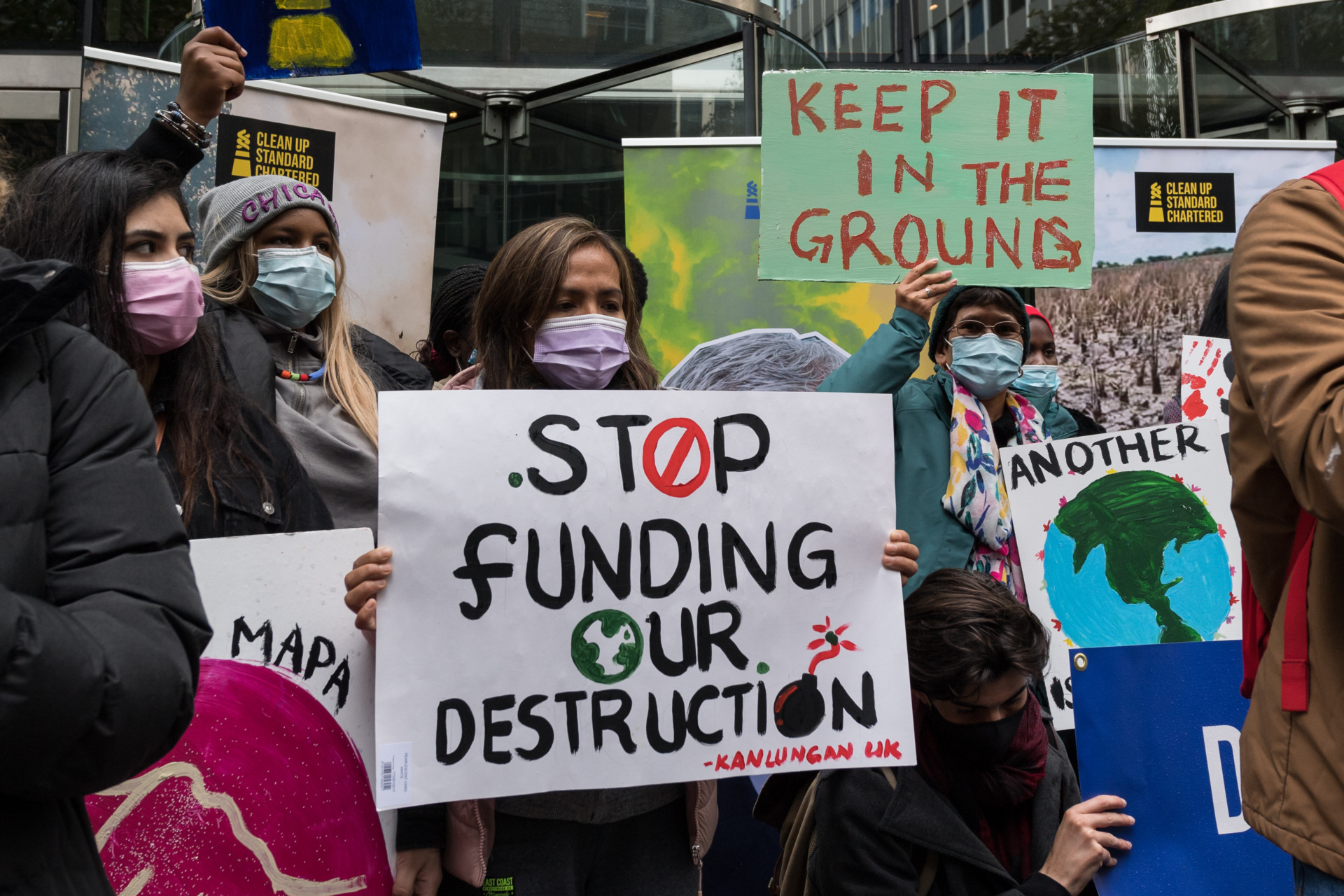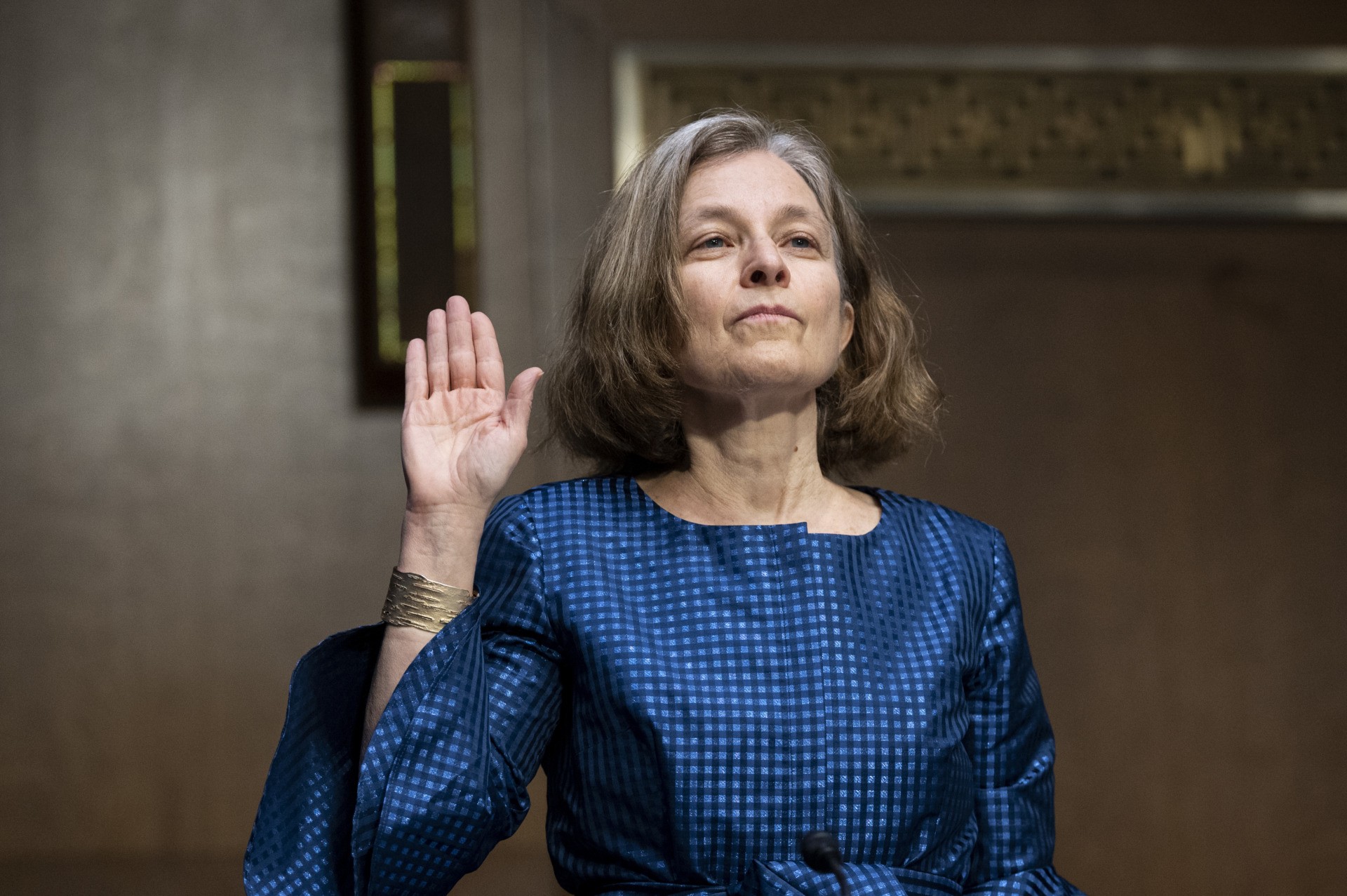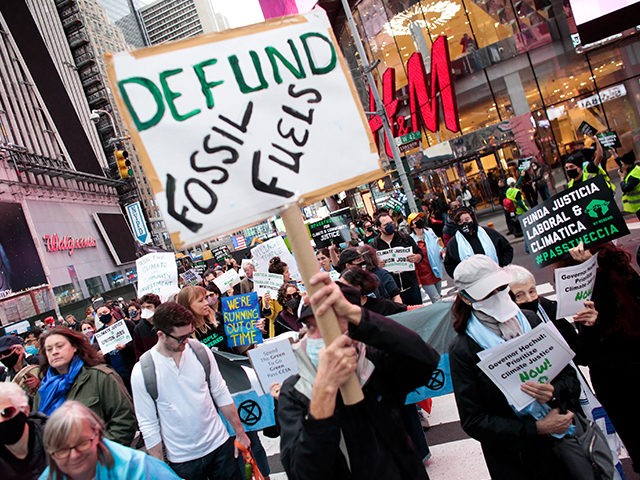The danger of the idea that financial institutions should impose the climate change agenda of the global left was highlighted this week by three events.
We witnessed the furious reaction when the head of the World Bank, David Malpass, declined to immediately swear an oath of loyalty to the left’s position on climate change. At a panel discussion in New York City, Malpass was asked if he agreed that “manmade burning of fossil fuels is rapidly and dangerously warming the planet.” Malpass responded by saying, “I don’t even know. I’m not a scientist. That’s not a question.”
This set off an international firestorm. The usual suspects of “Non-Governmental Organization”—typically pressure groups for the transfer of money and authority into government hands—and activists were soon calling for Malpass’s head. Al Gore announced that it is “ridiculous to have a climate denier the head of the World Bank.” Axios reported that Biden administration officials are scheming to oust Malpass, whose five-year term does not expire until 2024.

World Bank President David Malpass speaks during a media briefing ahead of the IMF-World Bank spring meetings on April 11, 2019, in Washington, DC. (Mark Wilson/Getty Images)
In reality, it is the campaign against Malpass that is ridiculous. As the World Bank pointed out after the climate extremists began wailing for blood: “Under the leadership of David Malpass, the World Bank Group doubled its climate finance, published an ambitious Climate Change Action Plan and initiated country level diagnostics to support countries’ climate and development goals.” Malpass clarified his remarks later in the week, saying he is not a “denier” and agrees that “greenhouse gas emissions are coming from manmade sources, including fossil fuels, methane, agricultural uses and industrial uses.” He also said that he agrees those emissions are contributing to climate change.
This has not satisfied his critics for the obvious reason that they were not particularly upset by his most recent remarks. Last year, a group of 70 pressure groups jointly called for his removal. At the heart of the matter is that Malpass refuses to concede to their demand that the World Bank phase out all financing of fossil fuels. Malpass would have been better served to directly take on the left’s campaign to regulate climate change through the financial system. He could have answered that he does not have a position on the causes of climate change because it is not in the purview of the World Bank. If legislatures and national leaders around the globe want to phase out financing for fossil fuels, they are free to do so, and the World Bank would respect those decisions. It’s not the job of the World Bank to address climate change, he should have said.
Similarly, it is not the job of the Office of the Comptroller of the Currency (OCC) to address climate change. The OCC is one of America’s primary bank regulators, alongside the FDIC and the Federal Reserve. Absurdly, however, it has an office charged with assessing “climate change risk.” The reason this exists is that the Biden administration has adopted the view of leftwing academics that regulators should discourage financing of fossil fuels under the guise that this creates risk for banks of incurring losses once the U.S. inevitably rejects energy that produces emissions that stand accused of contributing to climate change.

Climate change activists protest outside the Standard Chartered HQ against financing of fossil fuel projects in London, United Kingdom, on October 29, 2021. (Wiktor Szymanowicz/Anadolu Agency via Getty Images)
Of course, there is nothing inevitable about the transition away from fossil fuels. This is one option among many for addressing climate change. It is not one that has been written into the laws or regulations of the United States. There is no consensus among the American people that this should be a goal, and there has been almost no public deliberation about the matter. Even among those who agree that climate change poses serious challenges that will require changes in how we produce energy, there’s no logical necessity to agree that abandoning fossil fuels is the required response. Indeed, Americans may well decide that the costs of abandoning fossil fuels are likely to be greater than the costs of developing new technologies to reduce their emissions or adapting to a world with a changing climate.
Lawmakers have twice rejected the view that financial regulators should enforce a climate change agenda on the banking system. The first time was last fall when the administration could not win support for its appointment of Saule Omarova to the Office of Comptroller of the Currency and was forced to withdraw her nomination. The far-left law professor had advocated for eliminating private-sector banking and treating all businesses as franchises of the U.S. government. She had said that bankrupting small oil and gas companies should be welcomed, a statement she later recanted but only after it became clear that it was an obstacle to her confirmation.
Next came the rejection of the nomination of Sarah Bloom Raskin to the Federal Reserve. Raskin is one of the most prominent advocates of using the concept of “transition risk” to pressure banks out of funding fossil fuels. Fortunately, Sen. Joe Manchin (D-WV) and every Republican senator realized that regulating climate through bank supervisory stances was a bad idea.

Sarah Bloom Raskin, nominee to be vice chairman for supervision and a member of the Federal Reserve Board of Governors, is sworn in during a Senate confirmation hearing on February 3, 2022, in Washington, DC. (Bill Clark-Pool/Getty Images)
Yet this did not stop the Biden administration from appointing a China-educated ESG proponent as chief climate risk officer of the OCC. This is not a position subject to Senate confirmation, so her appointment cannot be rejected by lawmakers. But that should not stop Republicans and Democrats worried about government overreach and the infiltration of this radical policy of climate regulation through financial regulation from questioning the administration about this appointment and the existence of this office. The Biden administration, led by radical academic theory, is attempting to conduct stealth regulation of the U.S. economy by starving industries it doesn’t like of financing. That should worry lawmakers.
Finally, we had the ridiculous spectacle of Rep. Rashida Tlaib (D-MI) demanding in a House hearing that the leaders of our biggest banks pledge to end all financing of new fossil fuel projects immediately. Fortunately, they refused to do so. Jamie Dimon, the head of J.P. Morgan Chase, colorfully explained that this would put American “on the road to Hell.” She responded to their refusal by threatening the banks with regulations to force them to comply.
It is especially disturbing that we are witnessing these events even while Europe is plunging into a deep recession largely because it did not invest enough in fossil fuel infrastructure, allowing itself to become dependent on Russian natural gas. We’re only a couple of months away from the ESG-caused spike to a record high in gasoline prices here in the U.S. The last thing the global economy or the U.S. economy needs now is less investment in oil and natural gas. Yet that’s what each of these events is trying to bring about. If anything, the real transition risk has turned out to be the fact that the U.S. and European economies tried too early to transition away from fossil fuel investment.

COMMENTS
Please let us know if you're having issues with commenting.